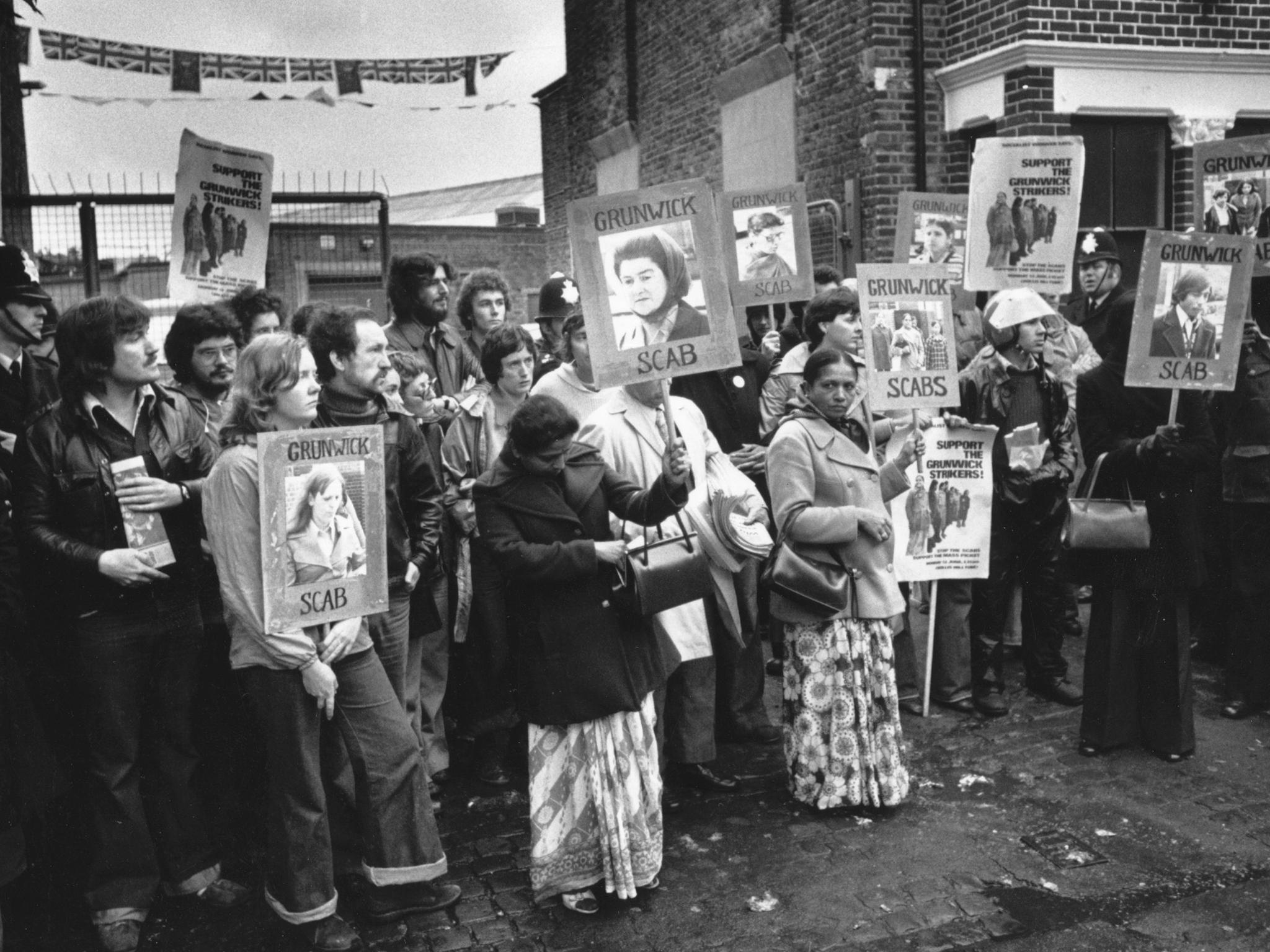The working class isn’t as white as some would like you to think
A cultural analysis – with its attendant vocabulary of identity, community and belonging – fails to tackle the very real material inequalities that continue to widen in our society and disproportionately impact people of colour


Your support helps us to tell the story
From reproductive rights to climate change to Big Tech, The Independent is on the ground when the story is developing. Whether it's investigating the financials of Elon Musk's pro-Trump PAC or producing our latest documentary, 'The A Word', which shines a light on the American women fighting for reproductive rights, we know how important it is to parse out the facts from the messaging.
At such a critical moment in US history, we need reporters on the ground. Your donation allows us to keep sending journalists to speak to both sides of the story.
The Independent is trusted by Americans across the entire political spectrum. And unlike many other quality news outlets, we choose not to lock Americans out of our reporting and analysis with paywalls. We believe quality journalism should be available to everyone, paid for by those who can afford it.
Your support makes all the difference.So much for the sans-culottes of the deindustrialised rust-belt: when the citizenry of Trump’s “forgotten” America showed up in Charlottesville last weekend, it was in sports jackets and chinos.
This was not the culture war the commentariat had prepared us for. Rather than Arlie Hochschild’s blue-collar Joe consigned to the scrap-heap by globalisation or indeed Joan Williams’ “ordinary working stiff” beset by cultural and economic anxiety, the ruddy faces of Unite the Right looked positively boujee.
It’s become a truism repeated to the point of banality: that across the global north, a revival of working class political engagement has driven electoral successes for the nationalist right. Dispossessed by globalist elites and mocked by a cosmopolitan intelligentsia, this demographic has been long underserved by our political classes, and neglected by the identitarian gatekeepers of cultural relevance.
Better writers than myself have debunked much of this narrative. In the UK as well as the US, the economically downtrodden are not racially homogenous. What’s more the existence of racial inequality makes itself known in economic outcomes: BAME households in the UK are twice as likely as their white counterparts to be amongst those hardest hit by austerity and BAME workers are over-represented in insecure and low-paid forms of employment. Between 2010 and 2015 long-term youth unemployment fell by 2 per cent for white people; in the same time period it rose by 50 per cent for BAME youth.
As Maya Goodfellow observed, the media fixation on the white working class is not only misleading, it is an example of the very identity politics it claims to deride. We find ourselves in a landscape where, in Owen Hatherley’s words, class is depoliticised: framed as “a sort of nationality, based on accent, culture and a particular set of views” rather than an economic relation.
This has not always been the case in the UK. While cultural anxieties regarding race and immigration have plagued the British political imaginary since the days of empire, left-wing and antiracist movements of the 1970s and 1980s suggested a different basis for understanding inequality. The Grunwick Strike of 1976 saw 137 (predominantly Asian and female) striking workers joined by 20,000 protesters, with Arthur Scargill and striking (mostly white and male) miners backing their dispute.
Working class Londoners of colour set up “monitoring shops” in every borough in response to far-right and police violence. Organisations such as Black People Against State Harassment (BASH) were set up as community self-defence initiatives, and while it wasn’t without its internal divisions and problems, there was a lively and populous antiracist movement in the UK.
The breaking of the miner’s strike in 1985, and the anti-trade union crusade that followed, has long been held as the demise of working class political organisation in the UK. Arguably just as important is the response of Thatcher’s government to the riots of 1981 and 1985. After decades of police harassment under racist “suss” powers (an informal name for a stop and search law), “managed decline” of urban centres and high-profile instances of deaths following police contact, tensions twice boiled over into outbreaks of mass disorder across the UK as working class people of colour took to the streets.
Thatcher had previously been to the right of the Conservative Party on issues of race and immigration: following the Brixton riots, however, her government set about implementing the findings of the Scarman Report, which recommended nationwide funding of cultural projects to include ethnic minority communities in a sense of national belonging. The Urban Programme’s budget blossomed to £270m and 200 new “ethnic projects” were approved in 1982-3.
Such “ethnic projects” did little to mitigate the rampant inequalities in housing, employment and healthcare which grew under Thatcher’s neoliberal agenda. State multiculturalism was a programme to constrain the political effectiveness of anti-racist and industrial movements – the watchword of the day became representation rather than wealth redistribution. By focusing on race relations, Thatcher turned a project of anti-racist socioeconomic justice into one of ethnic representation – and the working class was split along racialised lines.
The contradictions of the multicultural project continued under Tony Blair. While the 1997 government were hailed as diverse modernisers, income inequalities (and associated racialised outcomes) widened under New Labour.
The 1999 Macpherson Report’s identification of “institutional racism” in the Metropolitan Police and the protection of minority rights by the Race Relations Act 2000 made it seem like Blair’s brand of cosmopolitan social democracy was a victory for the anti-racist organisers of the 1980s. However in 2003, Home Secretary David Blunkett dismissed institutional racism as a mere “slogan” which “missed the point”; immigration enforcement officers were made exempt from the Race Relations Act, which called open season on state harassment of non-EU migrants. Having separated out BAME communities from the national conception of class, Blair’s agenda began to exclude working class migrants too.
As the BNP made electoral inroads in the white-flight ring around London, New Labour became intent on being seen as just has hard on asylum seekers as their far-right competitors in order to preserve “community cohesion”. However as Arun Kundnani has noted in The End of Tolerance, the case for being tough on immigration was as much about capital as it was about culture. Under New Labour the number of successfully granted asylum applications halved in the space of two years. In the same time period, the number of temporary work visas doubled – creating a precarious, hyper-exploitable, racialised working class. These workers are the “forgotten forgotten”: the most vulnerable amongst a working class that was never as white as we’d like to imagine it.
Who are the white working class? If anything they are as much a product of state multiculturalism as the diversity tsars decried in the pages of right-wing tabloids. A cultural analysis – with its attendant vocabulary of identity, community and belonging – fails to tackle the very real material inequalities that continue to widen in our society, and disproportionately impact people of colour.
It would be a mistake for Corbyn’s Labour Party to hark back to a socialism which assumes racial homogeneity, or to continue the discourse of an authentocracy in which class is just a set of cultural distinctions. The disintegration of neoliberal consensus across the global north presents us with an opportunity for a renewed politics of social and economic justice. Projects of wealth redistribution are nothing without an anti-racist backbone. It’s the alt-right who want a culture war – the rest of us are just after a decent living.
Join our commenting forum
Join thought-provoking conversations, follow other Independent readers and see their replies
Comments